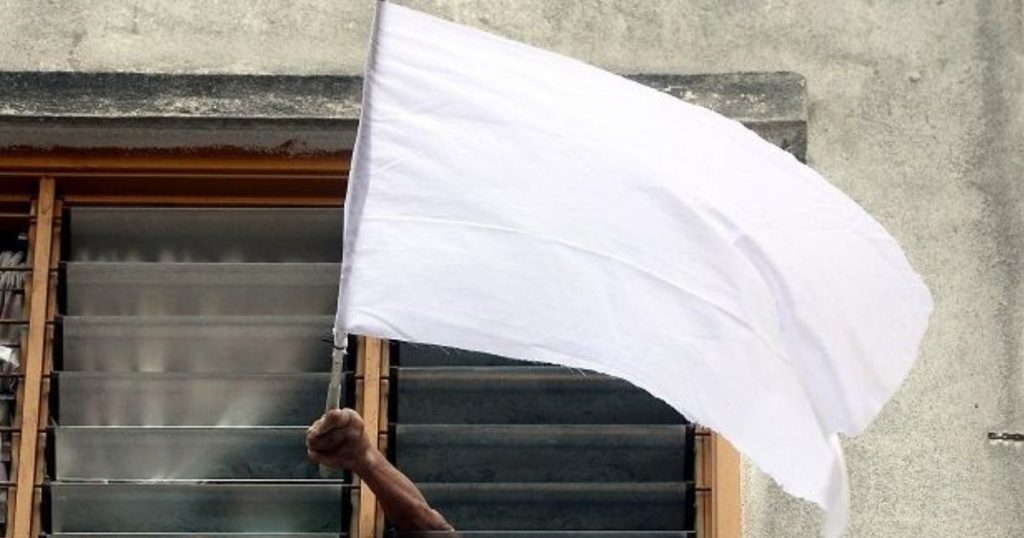In the pursuit of saving lives, livelihoods sometimes get compromised. As the Covid-19 pandemic extended into the first half of 2021, unemployment in Malaysia rose to 4.5%. For some who lost their source of income, it was an unsurmountable challenge to say:
“I need help.”
To lower the barrier for people to signal distress, a grassroots movement sprung up on June 28. Named the #benderaputih movement, which means “white flag” in the Malay language, anyone who needed immediate help can signal to the public by displaying a white flag.
The movement quickly caught on and spread through social media. Within a few days, dozens of #benderaputih Facebook groups emerged to connect those who needed help and who offered help. However, as a general social media platform, Facebook was limited in its ability to optimally connect the needy with aid.
A group of software engineers thought they could make it better. With the intention to connect scarce resources more effectively, Kita Jaga Malaysia, which translates to “We take care of Malaysia”, was born as the decentralized peer-to-peer charity platform to power this movement.
On the platform, anyone needing help could pin their location to receive the needed aid, and anyone providing help could likewise pin their location and contact details. Kita Jaga Malaysia was well received. Within the first month, 1.5 million unique visitors visited the platform, and 90,000 white flags were raised.
Two months after the platform was founded, the website continued to receive 2,800 flags per day. Kita Jaga Malaysia has become the go-to site for many people to receive immediate relief.
As MBA students taking a course on Platforms, Auctions and Competition taught by Prof. Melati Nungsari, Assistant Professor of Economics at Asia School of Business, we had the opportunity to listen to Reza Razali, founder and CEO of an app development house and the custodian of Kita Jaga Malaysia, share his journey in founding the platform.
Here was my glimpse of the key lessons learnt by the Kita Jaga Malaysia team that can be beneficial to anyone working with platforms, whether for social movements or commercial purposes:
1. Seek feedback from a diverse audience early and frequently.
In the Kita Jaga Malaysia case, the feedback happened daily, right from the start, with an audience of 15,000. Reza had a Telegram group of 15,000 members, from whom the team sought feedback and gauge reactions.
“The team communicates with the members daily – what features they want, and what features to take down. That has been very beneficial for us. We are able to get feedback in a very timely fashion.” At only two months old now, the team continued its focus on engaging diverse communities.
“We actively scour various platforms for feedback from those who need help and those who give help. Each platform has their own audience – Tik Tok users are mostly young digital natives, Facebook has civil societies serving the underprivileged, Instagram is for direct user-to-user communication. We have to communicate differently on each platform.”
2. It’s a continuous journey to discover what your users’ needs are, and how to fulfil them well.
“When Kita Jaga Malaysia first started, we wanted to see if there were people with food surplus to offer to people nearby who need it,” Reza recalled. Quickly, the team realized pressing needs went beyond just rice and oil.
There were also legitimate needs for formula milk and diapers for the babies and infants, for money to pay for rents, utility bills and school fees. People also needed jobs. “I was surprised to see one third of the flags were raised to ask for formula milk and baby diapers.”
Kita Jaga Malaysia realized it needed to figure out how to effectively fulfil the diverse needs, while preserving the simplicity and security of the website. “At the beginning, we focused on optimizing the platform to handle the large volume. Now we need to figure out how to fulfil diverse needs, especially the financial needs because it can be tricky,” said Reza.
3. The future of Kita Jaga Malaysia is DAO.
DAO stands for decentralized autonomous organization. It is an innovation in organization design, where an organization is run by computerized rules and contracts rather than humans. DAO has been seen in cryptocurrency projects such as bitcoins and Ethereum.
In DAO, governance tokens will be distributed to organization members. The holders of these governance tokens, not the founders, will collectively make decisions on changes and improvements in the organization.
Reza aspired to turn Kita Jaga Malaysia into a DAO, so the organization can sustain itself and continue to serve even beyond the pandemic. “If you haven’t been exposed to DAO, it’s something you might want to read up more on.”
Conclusion
The Covid-19 pandemic has caused some households to sink into poverty and created concerning social issues. The Kita Jaga Malaysia team was innovative to leverage their past experience in software development and the latest innovations available to alleviate the problem.
As the saying goes: “Necessity is the mother of all invention.”
The world is never short of problems that need to be solved. While some of the future problems will continue to be unprecedented, we can perhaps seek solace in our collective expertise and latest technology to develop new solutions, just like what Kita Jaga Malaysia has done to take care of the needy in Malaysia.





